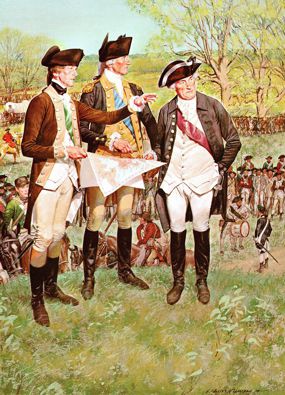
The Story of An 18th Century Woman from A Prominent New England Family Who Went from A Life of Privilege to The Gallows
Bathsheba Spooner was the daughter of Timothy Ruggles, a general in the French and Indian War, president of the Stamp Act Congress, Chief Justice of the Court of Common Pleas, and a leading loyalist in Massachusetts during the Revolutionary War; the epitome of upper class.
Like her father, Bathsheba was smart, strong-willed, and a staunch British loyalist. Forced to marry a man she did not love, Bathsheba withstood her husband’s abuse for years until a young Continental soldier entered her life. But when this well-heeled mother of three small children discovered she was pregnant with the soldier’s child, her thoughts quickly turned to murder.
Based on a true story, the events that follow Bathsheba’s life, her decisions, and her ultimate demise will show readers that Bathsheba Spooner was, in fact, Unlike Any Other.

The American Continental Army
There was more than one Continental Army. The beginning of the continental army was the New England Army and New York Army. It was brought into existence by the Continental Congress in 1775.
The New England Army was a motley collection of men, farmers, tradesmen, and merchants ready to defend hearth and home and oppose British rule. They were called Minutemen, ready to assemble and march at a minute’s notice. There could be several units in each town. The members of each unit elected officers. Gathering at the local green, usually on a weekly basis, they trained in marching and drilling. Most had muskets; some did not.
On April 19, 1775, word spread throughout Massachusetts that the British had attacked Concord and Lexington. Paul Revere, he of poetic fame, never completed his ride begun the night of the 18th, for he was detained by British troops in Lexington on the way to Concord. Word was spread from town to town and village to village by other riders who fanned out and spread the word to assemble and march because the British were coming.
The Minutemen marched to larger towns to gather with other units before marching to Lexington and Concord. When they arrived in Concord late that day or early the next, the fighting was over. Making their way toward Boston, plans were laid for a siege to bottle the British up to prevent further incursions. The Siege of Boston had begun.
However, men came and went at will. Some had to get home for their farm duties, while others got bored and left. Discipline was almost nonexistent, as were supplies of ammunition and powder. There were no sanitary facilities and food was whatever each man had brought or what could be bought or scrounged on the way.
On Saturday, June 17, 1775, The Battle of Bunker Hill, which was actually fought on Breed’s hill, was fought. While a tactical victory for the British, it was also a sobering experience as they had over 1,000 casualties compared to the militia’s 400. Many British officers were killed. After seeing battle for the first time and having friends and family members killed or wounded, a sizable number of the militia left and went home. Those that chose to stay were the true core of the new army.

This unorganized and slipshod way of putting together an army under General Artemas Ward’s command changed when General George Washington took command on July 2, 1775, at Cambridge, Massachusetts. He was a strict disciplinarian, appointed officers after reorganizing the units, and pushed and shaped the army into some semblance of a fighting force.
Like Washington, some of the officers had fought in the French and Indian War, part of what became known as the Seven years’ War, a global conflict. They knew about discipline, and slowly, through extensive training, a true fighting force began to emerge.
This infant army, untested, poorly equipped, and untrained, was going against the world’s most powerful, best equipped, and best-trained army. To many Americans, it seemed like a fool’s errand. Many people thought that the war would be over in a brief time.
Militia units were forming or had formed in the other colonies. These were made up of part-time citizen soldiers loyal to their colony or were independent. One of the key issues was that the responsibility for provisioning the army was that of each colony. That didn’t work well as some colonies provided better than others, but all were not good. Supplies of everything were always short. Men weren’t paid for months. Guns and ammunition were hard to come by. Uniforms were a hit-or-miss affair with officers getting them.
The Continental Army of 1776 was begun after the enlistments for the 1775 army expired. Many soldiers were promised land or, in the case of slaves, their freedom if they fought. At that point, enlistments were generally for one year. Enlistments were extended from three years or until the end of the War. However, the army was plagued by sickness and desertion. As the War progressed, in 1776-1777, the number of soldiers dropped to a low of approximately 11,000. If new soldiers could not be found, the War would have ended by forfeit—the colonies would not have enough soldiers to fight.
Over the next four years, as the number of soldiers fluctuated, Washington’s army was on the edge of defeat several times. In 1781, Congress was bankrupt and could not afford to pay the soldiers and provide much-needed supplies. Support for the patriotic cause faltered. Mutinies took place in some contingents of the army, which Washington put down quickly.
The world order would be completely different now if they had lost. America may have become the Dominion of America, a large part of the British Empire. But Washington persevered and won when it was most needed and managed a victory that was considered all but impossible a few years earlier.
Amazon UK: https://www.amazon.co.uk/Unlike-Any-Other-Ed-Londergan-ebook/dp/B09VCGWH22
Amazon US: https://www.amazon.com/Unlike-Any-Other-Ed-Londergan-ebook/dp/B09VCGWH22
Amazon CA: https://www.amazon.ca/Unlike-Any-Other-Ed-Londergan-ebook/dp/B09VCGWH22
Amazon AU: https://www.amazon.com.au/Unlike-Any-Other-Ed-Londergan-ebook/dp/B09VCGWH22
Barnes and Noble: https://www.barnesandnoble.com/w/unlike-any-other-edward-londergan/1140197760
Waterstones: https://www.waterstones.com/book/unlike-any-other/edward-londergan/9781935052746
Kobo: https://www.kobo.com/us/en/ebook/unlike-any-other-2
Hudson Booksellers: https://www.hudsonbooksellers.com/book/9781935052746
Indiebound: https://www.indiebound.org/book/9781935052746
Books-A-Million: https://www.booksamillion.com/search?filter=&id=8338934483810&query=Unlike+Any+Other+Edward+Londergan
Meet Ed Londergan

Ed Londergan is the author of the award-winning books The Devils’ Elbow and The Long Journey Home. Having researched American history for many years, he is a frequent speaker with a focus on colonial Massachusetts. A graduate of Holy Cross, he lives in Warren, Massachusetts.
Connect with Ed
Website: www.edlondergan.com
Twitter: https://twitter.com/EdLondergan
Facebook: https://www.facebook.com/EdLonderganAuthor
LinkedIn: https://www.linkedin.com/in/edlondergan/
Instagram: https://www.instagram.com/edlonderganauthor/
Amazon Author Page: https://www.amazon.com/Ed-Londergan/e/B008LCGOK4%253
Goodreads: https://www.goodreads.com/book/show/60678836-unlike-any-other
Thank you for hosting the blog tour for Unlike Any Other!
All the best,
Mary Anne
The Coffee Pot Book Club